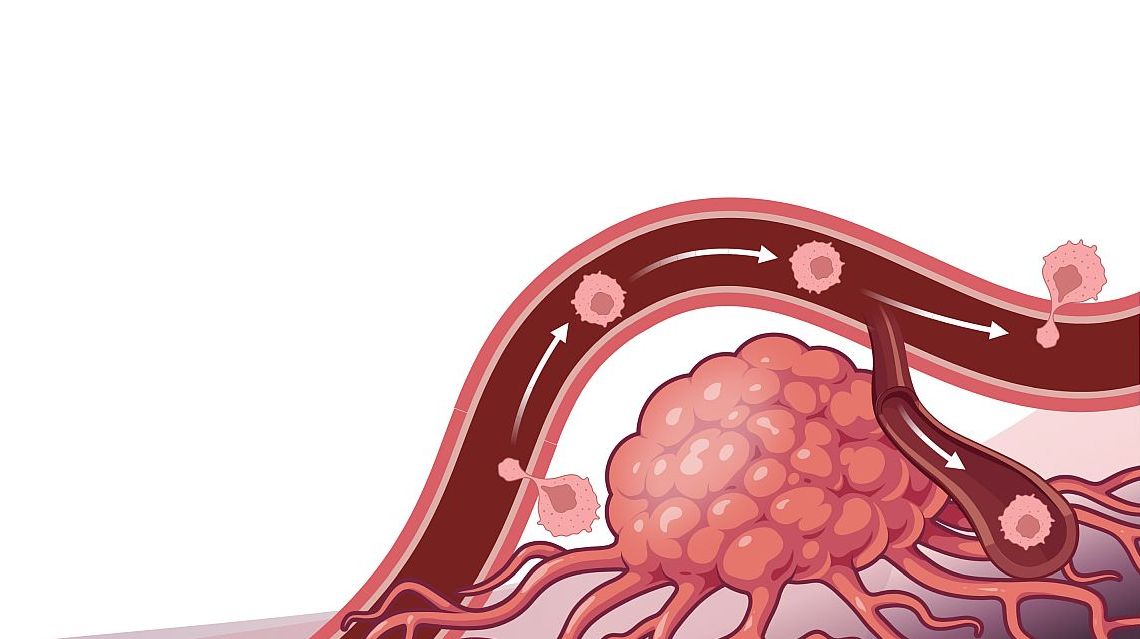Aims of the research focus
The development of carcinomas is a multistep process which most frequently leads to the metastatic dissemination of primary tumors.
The metastatic process encompasses various steps such as (1) local cell infiltration into the surrounding tissue, (2) entry of tumor cells into the vasculature as well as (3) exit from the circulation, resulting in metastatic colonization in distal organs.
A sequence of genetic and epigenetic alterations required for the acquisition of metastatic abilities is associated with enhanced cell invasion and epithelial dedifferentiation. Corresponding changes in epithelial plasticity have been described during embryonic tissue remodeling and are reactivated during carcinoma progression.
We focus on the molecular mechanisms underlying the various aspects of cancer cell invasion and dissemination by analyzing the role of the TGF-β signaling pathway and cell signaling from the receptor tyrosine kinase AXL pathways in liver cancer. The TGF-β/AXL regulated communication of liver cancer cells with activated fibroblasts and immune cells in the tumor microenvironment is of particular relevance in our studies. By investigating tumor models together with cancer patient samples, we develop accurate biomarkers for diagnosis and novel strategies for intervention with liver cancer progression and metastasis.
We also develop and use computational and machine learning approaches to identify regulators of transcriptional plasticity in cancer initiation and progression. The escape of individual tumor cells from otherwise very effective therapies it is currently not well understood and thus represents a major hurdle in preventing cancer progression.
Thus, the combination of computational approaches with state-of-the-art technologies to study the plasticity of thousands of individual cells provides us with a particular angle to understand the basic mechanisms underlying the cellular evolution during cancer treatment.
This will in turn give us unique opportunities to identify successful treatment strategies that can prevent resistance to current therapies.

